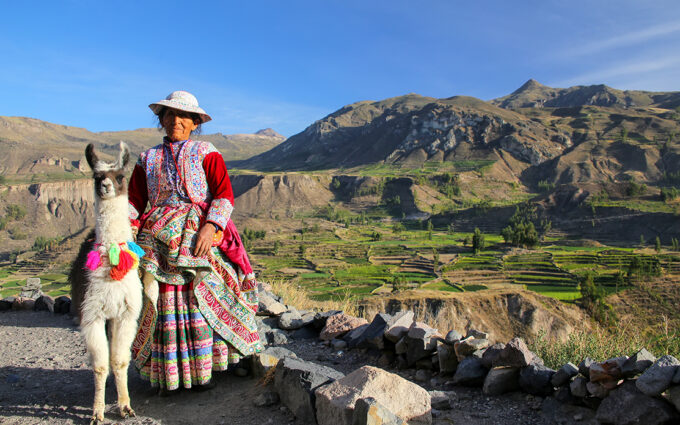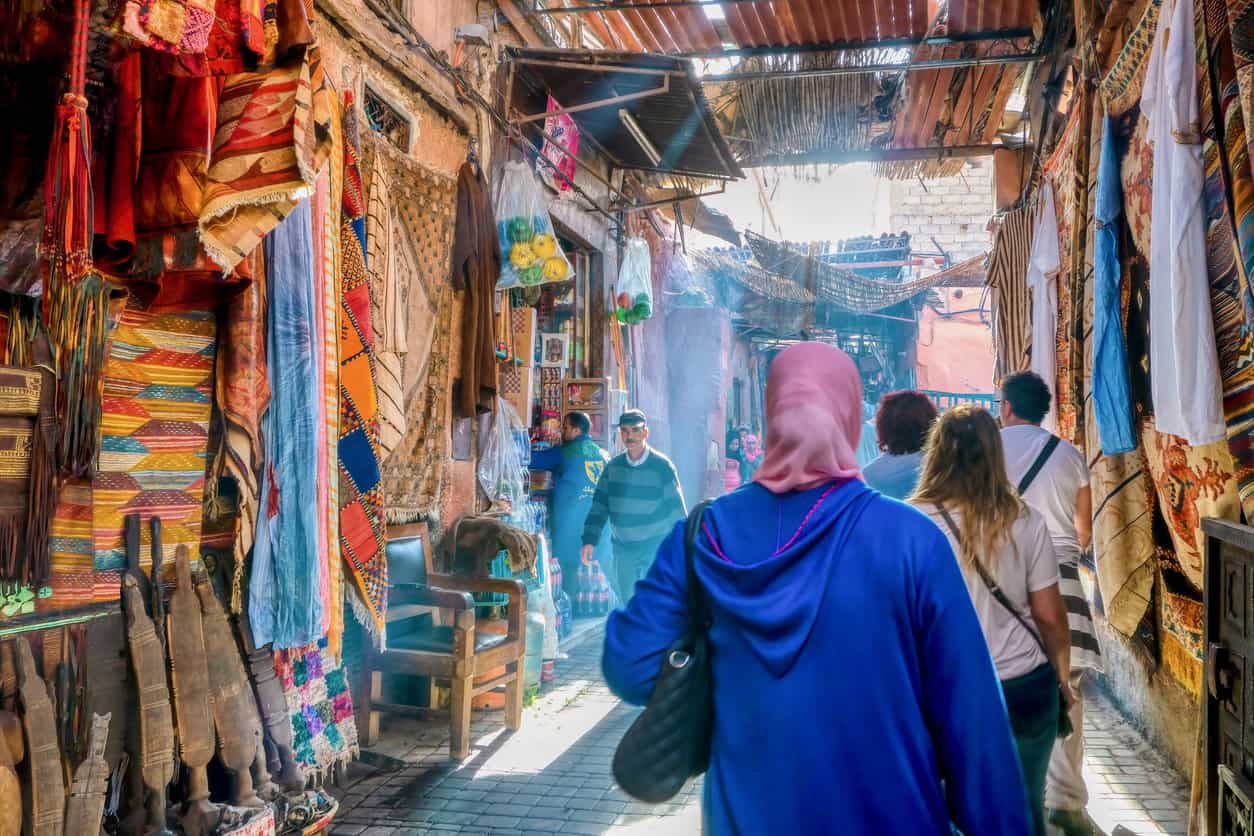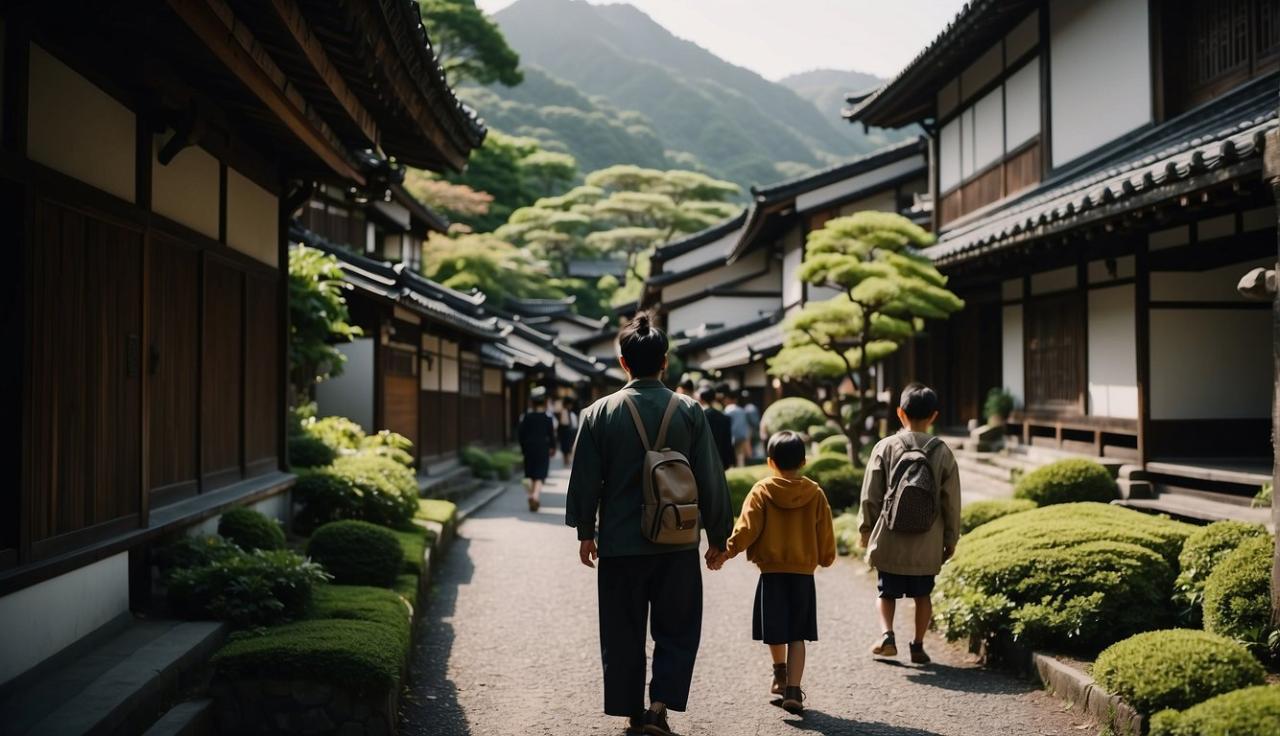In a world increasingly interconnected yet paradoxically prone to superficial interactions, a powerful shift is redefining the very essence of global travel. The traditional pursuit of sightseeing and passive observation is yielding to a fervent desire for genuine, deep-seated engagement. This growing demand for cultural immersion trips signifies a profound evolution in how people choose to explore the world, moving beyond the casual glance to seek authentic connections. This comprehensive article will delve into the compelling reasons behind the surging popularity of these immersive journeys, dissecting their profound benefits for personal growth and global understanding, offering practical strategies for finding and maximizing such experiences, and highlighting how this transformative approach is reshaping the global tourism industry. Prepare to discover why truly living like a local, even for a short while, is becoming the gold standard for modern explorers.
Beyond the Surface

For generations, travel was often characterized by ticking off landmarks, snapping photos, and experiencing a destination from a comfortable, often sanitized, distance. The typical tourist itinerary involved bus tours, international hotel chains, and dining in establishments catering to a global palate. While convenient, this approach frequently left travelers with a sense of superficiality, missing the true heart and soul of the places they visited.
Today’s travelers, however, are increasingly seeking more. Empowered by readily available information, a growing social consciousness, and a yearning for meaningful experiences, they are actively pursuing travel that allows them to peel back the layers of a destination. Cultural immersion trips are designed precisely for this purpose. They encourage participants to step outside their comfort zones, interact authentically with local communities, learn about daily life firsthand, engage with traditions, and understand perspectives often overlooked by conventional tourism. This isn’t just about witnessing a culture; it’s about actively participating in it, fostering a reciprocal exchange that enriches both the visitor and the host.
The Driving Forces Behind the Cultural Immersion Boom
Several powerful and interconnected trends are fueling the rapid growth and widespread appeal of travel focused on deep cultural engagement:
A. Desire for Authentic and Meaningful Experiences:
Modern travelers crave experiences that resonate on a deeper level. They are looking for stories to tell, not just photos to show. Cultural immersion offers unparalleled opportunities for genuine human connection, personal revelation, and a sense of having truly “lived” a destination, rather than just passed through it. This emphasis on meaning over materialism is a significant driver.
B. Rejection of Mass Tourism and Homogenization:
Many popular tourist destinations have become overcrowded and, ironically, less unique due to over-commercialization and the global spread of generic brands. Travelers are actively rebelling against this homogenization, seeking out places and experiences that retain their distinctive cultural identity and offer a genuine sense of place. They desire to escape the “tourist bubble” and encounter real life.
C. Increased Awareness of Responsible and Ethical Travel:
There’s a heightened consciousness about the impact of tourism on local communities and environments. Travelers want their money to directly benefit local people and preserve cultural heritage. Cultural immersion trips, especially those focused on community-based tourism, align perfectly with these ethical considerations, ensuring a more equitable distribution of tourism benefits.
D. Influence of Social Media and Storytelling Platforms:
Social media has shifted from just showcasing pretty places to highlighting unique, personal travel narratives. Travelers are inspired by stories of homestays, cooking with local families, participating in traditional festivals, or learning ancient crafts. These narratives demonstrate the richness and accessibility of immersive experiences, encouraging others to seek them out.
E. Demand for Personal Growth and Expanded Worldview:
Stepping into an unfamiliar culture forces individuals to challenge their preconceptions, develop empathy, and adapt to new ways of thinking and living. This process leads to profound personal growth, fosters a broader worldview, and cultivates a deeper understanding of human diversity and interconnectedness.
F. Accessibility of Information and Local Connections:
The internet, coupled with peer-to-peer platforms, specialized tour operators, and local community initiatives, has made it significantly easier to research, find, and book authentic cultural experiences that were once difficult for outsiders to access. Online reviews and direct communication empower travelers to find genuine opportunities.
G. Shift Towards Slow Travel Philosophy:
The “slow travel” movement encourages spending more time in fewer places, allowing for deeper immersion and a more leisurely pace. This philosophy naturally lends itself to cultural immersion, as it provides the necessary time to truly connect with a destination’s rhythm, people, and daily life, fostering more profound engagement.
H. Educational Opportunities and Skill Acquisition:
Many immersion trips offer opportunities to learn new skills directly from local experts, whether it’s traditional cooking, a local craft, a new language, or indigenous farming techniques. This educational aspect adds tangible value and creates lasting memories.
Practical Approaches on Your Journey
Finding and engaging in genuine cultural immersion requires a proactive mindset, an openness to the unfamiliar, and a willingness to step away from traditional tourist pathways.
Strategies for Experiencing Authentic Cultural Immersion
A. Opt for Local Accommodations:
Choose guesthouses, homestays, locally-owned boutique hotels, or even consider house-swapping or couchsurfing. These options offer direct interaction with local hosts, providing invaluable insider tips, opportunities for conversation, and a glimpse into daily life that large, international hotels cannot offer.
B. Learn Basic Local Phrases:
Even mastering a few greetings, polite phrases (“please,” “thank you,” “excuse me”), and numbers in the local language can dramatically enhance your interactions. It shows respect for the culture, often elicits warmer responses, and can lead to more meaningful conversations and invitations.
C. Eat Like a Local:
Prioritize local eateries, street food stalls, and bustling markets over international restaurants in tourist areas. Ask locals for their favorite spots, try regional specialties, and be adventurous with new flavors. Food is a universal language and a direct window into culture.
D. Use Public Transportation:
Traveling by local buses, trains, or even shared taxis provides an authentic slice of daily life. It allows you to observe how people commute, interact, and navigate their environment, often leading to unexpected conversations and discoveries.
E. Visit Local Markets and Non-Touristy Neighborhoods:
Spend time wandering through local food markets, artisan markets, or neighborhood bazaars. Observe the interactions, try local produce, and engage with vendors. Explore residential areas away from main attractions to get a true feel for the local rhythm and community life.
F. Participate in Local Classes or Workshops:
Enroll in a cooking class focused on traditional regional cuisine, a language exchange session, an artisan workshop (e.g., pottery, weaving, traditional music), or a dance lesson. These hands-on experiences offer direct cultural engagement and practical skills.
G. Hire Local, Independent Guides:
Instead of large tour companies, seek out independent local guides who can offer personalized insights, share their personal stories, and take you to places not typically found in guidebooks. This also directly supports local livelihoods and ensures a more authentic perspective. Check local tourism boards or platforms like Airbnb Experiences.
H. Attend Local Festivals, Events, or Religious Ceremonies (Respectfully):
Check local calendars for festivals, community gatherings, sports events, or religious ceremonies during your visit. Participate respectfully (researching customs beforehand), as these are prime opportunities to witness and often join in authentic cultural expressions.
A Transformative Journey
Engaging in cultural immersion offers a wealth of profound benefits that extend far beyond the immediate travel experience, leading to lasting personal growth and a broader understanding of the world.
Advantages of Embarking on Cultural Immersion Trips
A. Deeper Understanding and Empathy:
Direct interaction with local communities fosters profound empathy and a nuanced understanding of their daily lives, traditions, challenges, and perspectives, breaking down stereotypes and promoting global citizenship.
B. Enhanced Personal Growth and Resilience:
Stepping outside your comfort zone, navigating unfamiliar situations, and adapting to new customs builds resilience, adaptability, problem-solving skills, and self-confidence, leading to significant personal development.
C. More Meaningful and Memorable Travel:
These experiences create lasting memories that are often more profound, vivid, and impactful than simply visiting landmarks. They become cherished stories you’ll carry with you for a lifetime.
D. Authentic Human Connections:
You form genuine, often unexpected, connections with locals, which can lead to friendships, invitations to private events, and an even deeper, unfiltered look into their lives, enriching your social fabric.
E. Broader Perspective and Worldview:
Exposure to different ways of life challenges your assumptions, expands your understanding of human diversity, and enriches your worldview, making you a more informed, tolerant, and engaged global citizen.
F. Skill Acquisition and Learning:
Whether it’s learning to cook a new dish, mastering basic phrases in a new language, understanding a traditional craft, or navigating a complex public transport system, these trips often involve acquiring valuable new skills.
G. Support for Sustainable and Equitable Tourism:
By directly engaging with local businesses and communities, you ensure that tourism revenue stays within the region, fostering sustainable economic development and empowering local entrepreneurs, contributing to a more equitable form of tourism.
H. Reduced Environmental Impact (Often):
Cultural immersion often involves less resource-intensive activities (walking, public transport, locally sourced food) and encourages longer stays in one place, leading to a smaller environmental footprint compared to fast-paced, multi-destination mass tourism.
I. Escape from the “Tourist Bubble” and Digital Detox:
Immersion encourages you to disconnect from digital distractions and the artificial environment of tourist zones, allowing for true presence and engagement with your surroundings and the people in it.
Adapting to the New Traveler

The undeniable demand for authentic local experiences is compelling the global travel industry to adapt and innovate, moving away from generic offerings towards more personalized, impactful, and community-centric travel products.
Industry Adaptations to the Cultural Immersion Trend
A. Rise of Specialized Experiential Tour Operators:
Traditional tour operators are either creating new divisions or new companies are emerging, specializing in small-group tours focused entirely on deep cultural immersion, culinary experiences, artisan workshops, or community-based tourism, moving beyond standard sightseeing itineraries.
B. Emphasis on Local Guides and Storytelling:
There’s a growing preference for local guides who can offer genuine insights, share personal narratives, and provide an insider’s perspective, rather than just reciting historical facts. Companies are investing in training and empowering local residents to become cultural ambassadors.
C. Strategic Partnerships with Local Businesses and Communities:
Major travel platforms, hotel chains, and airlines are increasingly forming direct partnerships with small, local businesses, indigenous communities, and artisans to offer unique, authentic experiences and ensure economic benefits flow directly to the source.
D. Development of Unique Local Accommodation Offerings:
The popularity of homestays, farm stays, and small, family-run guesthouses is soaring. Large hotel groups are also developing “local” brands or incorporating cultural elements and community engagement into their properties, responding to the demand for more intimate and culturally connected lodging.
E. Promotion of Lesser-Known and Rural Destinations:
Tourism boards and travel marketers are strategically promoting off-the-beaten-path destinations, smaller towns, and rural areas that offer rich cultural authenticity and unique charm, aiming to disperse tourism and benefit a wider range of communities.
F. Customized and Personalized Itineraries:
Travel agencies are offering more tailored and flexible itineraries that incorporate specific local experiences based on individual traveler interests, moving away from rigid, one-size-fits-all packages. The focus is on co-creating the journey with the traveler.
G. Digital Platforms Connecting Travelers with Locals:
Innovative apps and websites are emerging to directly connect travelers with locals for meals, tours, skill-sharing, or cultural exchanges, facilitating peer-to-peer interactions and empowering local entrepreneurs and individuals.
H. Integration of Language and Cultural Learning:
Some travel companies are integrating basic language lessons or cultural etiquette workshops into their itineraries or pre-trip materials, helping travelers prepare for more meaningful interactions and showing respect for the host culture.
I. Focus on Culinary Tourism as a Cultural Gateway:
Food is recognized as a powerful tool for cultural immersion. Culinary tours, cooking classes, market visits, and farm-to-table dining experiences are becoming central offerings, allowing travelers to deeply engage with local culture through its flavors and traditions.
Conclusion
The surging popularity of cultural immersion trips signifies a profound and welcome evolution in global travel. It’s a powerful rejection of superficiality and a wholehearted embrace of meaningful connection, deep understanding, and responsible exploration. By prioritizing genuine interactions, learning from local perspectives, and actively participating in cultural life, travelers are not only enriching their own lives in profound ways but also directly contributing to the well-being and preservation of the communities they visit.
This trend signals a more conscious, empathetic, and sustainable future for tourism, where the true luxury lies not in extravagant amenities, but in the unforgettable moments born from authentic human connection and a deep appreciation for the world’s diverse tapestry. So, as you plan your next journey, challenge yourself to step beyond the familiar, open your heart and mind to the unexpected, and allow the true heart of your destination to transform your experience. The world is waiting to share its authentic self with you.











